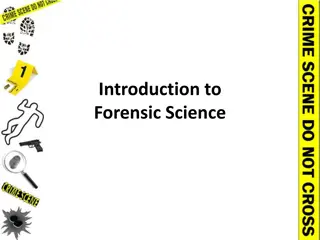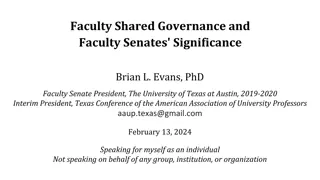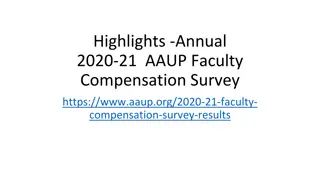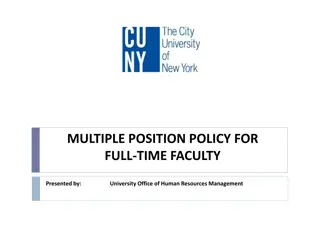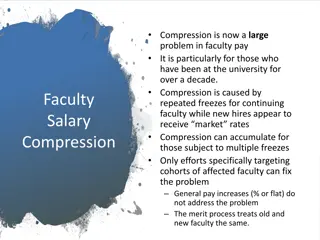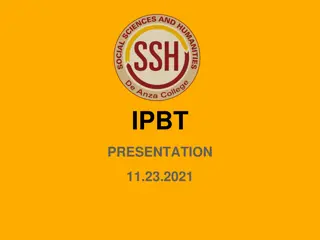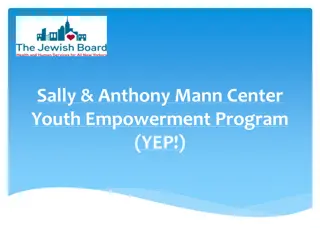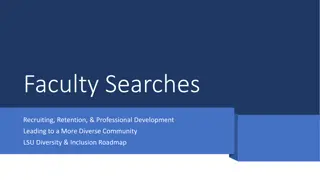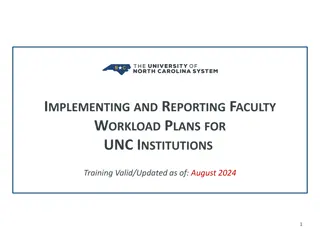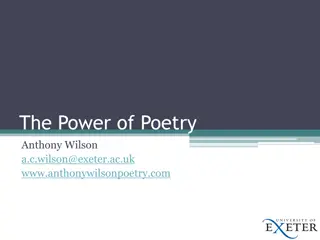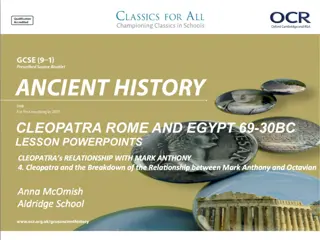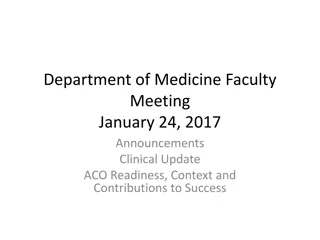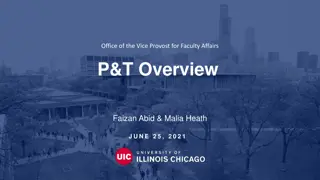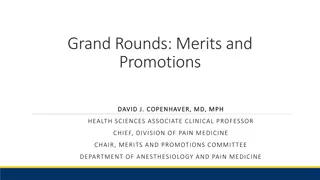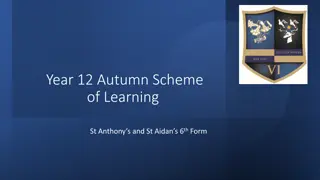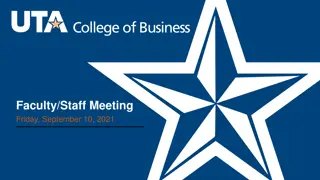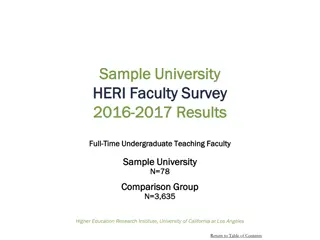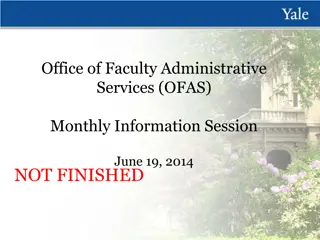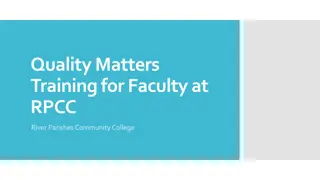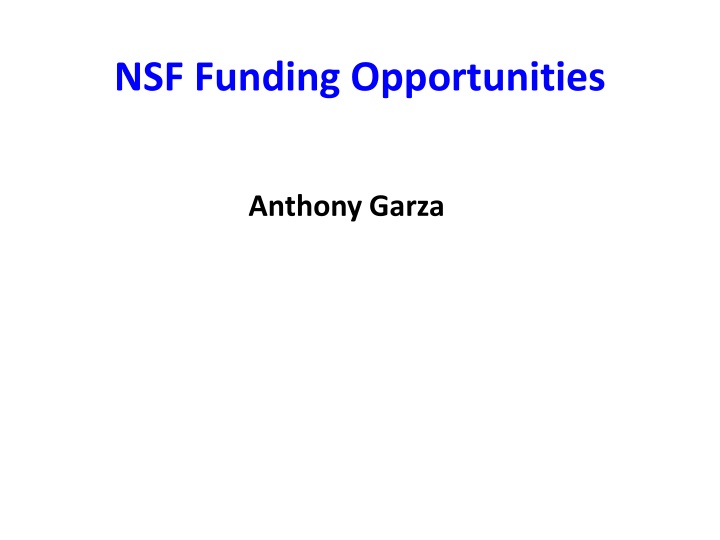
Maximizing NSF Funding Opportunities for Research Projects
Explore the various NSF funding opportunities available, such as general funding, CAREER proposals, EAGER, INSPIRE, and RAPID proposals. Understand the criteria for Intellectual Merit and Broader Impacts, including assessing potential impacts on society. Learn about additional elements required for proposals, including post-doc mentoring plans. Discover the standard proposal guidelines and funding levels across different directorates.
Download Presentation

Please find below an Image/Link to download the presentation.
The content on the website is provided AS IS for your information and personal use only. It may not be sold, licensed, or shared on other websites without obtaining consent from the author. If you encounter any issues during the download, it is possible that the publisher has removed the file from their server.
You are allowed to download the files provided on this website for personal or commercial use, subject to the condition that they are used lawfully. All files are the property of their respective owners.
The content on the website is provided AS IS for your information and personal use only. It may not be sold, licensed, or shared on other websites without obtaining consent from the author.
E N D
Presentation Transcript
NSF Funding Opportunities Anthony Garza
General Funding Opportunities Standard proposals or investigator-initiated research projects (submission once or twice a year, depending on the directorate and may have pre-proposals) CAREER proposals (tenure-track Assistant Professors or equivalent position) EAGER, INSPIRE and RAPID proposals
Intellectual Merit and Broader Impacts 1.What is the potential for the proposed activity to: a) advance knowledge and understanding within its own field or across different fields (Intellectual Merit); and b) benefit society or advance desired societal outcomes (Broader Impacts)? 2.To what extent do the proposed activities suggest and explore creative, original, or potentially transformative concepts? 3.Is the plan for carrying out the proposed activities well-reasoned, well organized, and based on a sound rationale? Does the plan incorporate a mechanism to assess success? 4.How well qualified is the individual, team, or institution to conduct the proposed activities? 5.Are there adequate resources available to the PI (either at the home institution or through collaborations) to carry out the proposed activities?
More on Broader Impacts Training graduate students, undergraduate students and high school students Training and education of members of underrepresented groups Provide K-12 teachers with a research experience Outreach-educational and to the public Enhance research community resources/infrastructure
Additional Elements The Results from Prior Support of the proposed activity NSF supported Research funded within the last five years Publications produced from prior NSF supported research The Data Management Plan of the proposed activity The impact of data generated at the site How will the data be stored, disseminated, and/or shared The Post Doc Mentoring Plan of the proposed activity If the Proposal shows financial support in the budget for a post-doc then a plan must be included
Standard Proposals Typically for 3 years Must include a research plan and a broader impacts section (15 pages total) Open to faculty at all stages of their careers Funding levels vary widely between directorates and even divisions within a directorate
Proposal Review-Standard Proposals Usually takes 4-6 months Reviewed by Panels May also have ad hoc reviews Panel rates the proposal, which serves as a recommendation to the program directors
Faculty Early-Career Development (CAREER) Program Prestigious awards to help a junior faculty member develop activities that can effectively integrate research and education All directorates/offices participate in the program Must have a research plan and broader impacts (broader impacts must have an element that integrates research and teaching)-15 pages total Five years of support ( 400K in most Directorates BIO, GEO/PLR, ENG are 500K) Only 3 submissions are allowed
Investigator Eligibility Criteria (CAREER) Hold a doctoral degree in a field supported by NSF by proposal deadline Be untenured by Oct 1st following proposal deadline Be employed in a tenure-track (or equivalent) position at an eligible institution as an Assistant Professor (by Oct 1st following deadline) Have not previously received a CAREER award
Proposal Review-CAREER Proposals Some directorates review CAREER proposals with standard proposals and others have CAREER-specific panels May also have ad hoc reviews Takes 4-6 months when reviewed with standard proposal, but often shorter when reviewed on CAREER-specific panel Panel rates the proposal, which serves as a recommendation to the program directors
EAGER, RAPID and INSPIRE proposals EAGER (5-8 pages total) grants support high risk-high reward projects. EAGER grants are 300K, 2 years maximum. They may only be reviewed internally. They are not renewable. RAPID (2-5 pages) grants support research with a severe urgency. RAPID grants are 200K maximum for 1 year. They may only be reviewed internally. They are not renewable. INSPIRE grants (15 pages) support bold interdisciplinary projects in all NSF-supported areas of science, engineering, and education research. Must be funded by two intellectually distinct divisions. INSPIRE grants are 1 million, 5 years maximum. They may only be reviewed internally
Questions? Anthony Garza agarza@syr.edu

